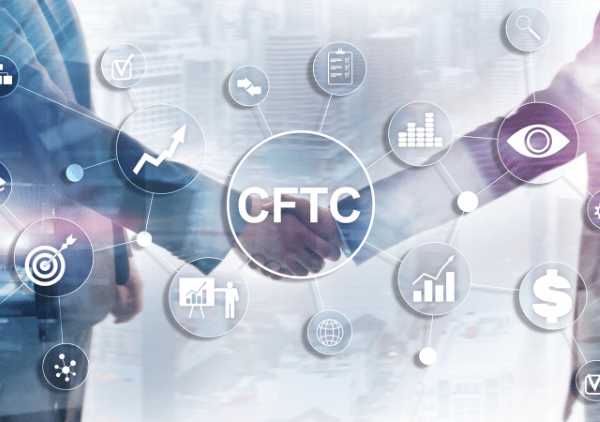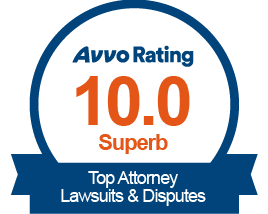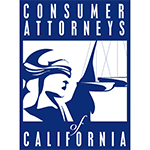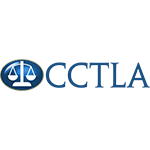CFTC Whistleblower Lawyer
People who are aware of fraud in the commodity futures or derivative markets should consult an attorney for guidance on filing a tip or complaint under the whistleblower program. Whistleblowers can potentially earn significant financial awards for assisting in fraud investigations.

Quick Links
- What is the CFTC?
- What is the CFTC Whistleblower Program?
- CFTC Whistleblower Awards
- Who Can Be a Whistleblower?
- Which Type of Fraud Can Result in a CFTC Whistleblower Complaint?
- CFTC Enforcement Action
- How to Report Fraud to the CFTC
- Whistleblower Protections
- How can a CFTC whistleblower lawyer help you before, during, and after you report a violation?
- Cutter Law Helps
If you are thinking of filing a whistleblower complaint or tip with the Commodities Futures Trade Commission (CFTC) to qualify for a potentially lucrative financial award, you’ll want an experienced whistleblower lawyer by your side. They can help you navigate the requirements of the whistleblower program the CFTC administers to increase your chances of securing a financial award.
Whistleblower awards can be significant dollar amounts. In 2022, the CFTC awarded a whistleblower nearly $10 million when the original and subsequent information he provided to regulators ended in a finding of violations of the Commodity Exchange Act.
What is the CFTC?
The Commodity Futures Trading Commission is a federal government agency that regulates the markets for commodity futures, commodity options, and swaps. The commodities traded in these markets span oil, metals, grains and animal products, and financial instruments and currencies.
A commodity futures contract subject to CFTC regulation is an agreement “to buy or sell a specific quantity of a commodity at a specified price on a particular date in the future,” according to the Financial Industry Regulatory Authority (FINRA).
The CFTC operates under The Commodity Exchange Act, which governs the trading of commodity futures trading in the United States. The Commission enforces the Commodity Exchange Act to protect consumers, the public, and market users and their funds from fraud, manipulation, and abusive practices related to derivatives and other products.
What is the CFTC Whistleblower Program?
After rampant financial fraud problems contributed to the 2008 great recession, Congress passed the Dodd-Frank Act. Dodd-Frank gave the CFTC the additional authority to provide incentives and protections for whistleblowers to report potential fraud. The agency then created the CFTC Whistleblower Program — the rules and requirements laying out how people can submit information on possible fraud in futures commodity trading and potentially be awarded for their efforts after a successful enforcement action.
CFTC Whistleblower Awards
The CFTC has established a number of rules for awarding whistleblowers financial payments, including that the information a whistleblower submits must meet the criteria for “original information.”
If the CFTC successfully brings an enforcement action where sanctions for the Commodity Exchange Act violator(s) total more than $1 million, the commission pays eligible whistleblowers a financial award.
Whistleblower awards range from 10 percent to 30 percent of the sanction payments the CFTC collects from an enforcement action.
When a whistleblower’s original information results in a successful action by another government entity the CFTC may pay the whistleblower an award for that action too, so long as the information also leads to a successful CFTC enforcement action.
A whistleblower must have submitted information before the CFTC or another agency contacts them seeking information or asking them to respond to questions. This is known as submitting information “voluntarily.”
To collect an award, whistleblowers must submit a WB-APP form seeking a payout award within 90 days of the CFTC, posting a notice that a final judgment(s) or settlement(s) have been reached where sanctions of violators exceed $1 million. That form is reviewed by the CFTC to determine eligibility and award amounts.
Recent Whistleblower Payouts
- $200 Million Whistleblower Award. The Commodity Futures Trading Commission awarded a single whistleblower nearly $200 million for the “specific, credible, and timely original information” provided that significantly contributed to an existing investigation and led to a successful CFTC enforcement action, two additional actions by other U.S. and foreign regulators.
- $625,000 Whistleblower Award. Four whistleblowers who provided a high degree of support to the CFTC enforcement team shared a $625,000 award.
- $500,000 Award. Two whistleblowers who provided significant information that helped the CFTC expand an existing investigation and revealed key evidence shared a $500,000 award.
$23.5 Million
Settlement won for government fraud in a whistleblower case against one of the world’s largest medical device manufacturers
$240 Million
Settlement in a nationwide defective medical device case involving defective pacemakers and cardiac defibrillators against Boston Scientific and Guidant
$12.95 Million
John R. Parker recently handled a case against the medical device company, Biotronik, Inc. for claims that they defrauded state and federal government agencies.
$4.7 Million
Brooks Cutter and John Parker obtained the settlement on behalf of our whistleblower clients in a case involving government fraud.
Who Can Be a Whistleblower?
Whistleblowers can be anyone with valid information on potential fraud in commodity futures trading — corporate insiders, investors, fraud victims, observers, and customers alike.
Entities or organizations cannot be whistleblowers under the CFTC Whistleblower Program and are not eligible for awards themselves.
To improve your chances of qualifying for a whistleblower award, consult a CFTC whistleblower lawyer.
Which Type of Fraud Can Result in a CFTC Whistleblower Complaint?
The legal term “fraud” that forms the basis of a whistleblower tip to the CFTC is defined by the Commodity Exchange Act.
The following activities that relate to futures, options, and swaps and a sales contract for any commodity in interstate commerce would constitute fraud reportable under the Whistleblower Program:
- Fraud. Fraudulent activity can include fraudulent solicitation, issuing false customer account statements, misappropriation or mishandling of customer funds, Ponzi schemes, or affinity schemes.
- Market manipulation. Attempted market manipulation and disruptive trading practices such as fictitious and non-competitive transactions and illicit trading strategies designed to manipulate or attempt to manipulate prices may be market manipulation. When someone enters an order with the intent to cancel it before it becomes a completed transaction – known as spoofing – is also considered market manipulation.
- Trade practice violations. Examples of trade practice violations include fictitious sales, unauthorized swap transactions, inadequate oversight of traders, and undercapitalization. You could also have something to report if you observe improper controls and supervision, improper handling and/or segregation of customer funds, or a lack of compliance with record-keeping and audit trail rules.
If you have observed any of these types of behaviors or actions, consult a CFTC whistleblower lawyer to determine whether you should file a complaint for a possible CFTC enforcement action and a potential award.
CFTC Enforcement Action
The CFTC has a group called the Division of Enforcement. The Division investigates and prosecutes alleged violations of the Commodity Exchange Act, along with Commission regulations. A whistleblower tip is one way an enforcement action by this CFTC unit can be triggered.
The Commission initiates enforcement actions against:
- Individuals and firms registered with the Commission
- Anyone engaged in commodity futures and option trading on designated domestic exchanges
- Anyone who improperly market futures and options contracts
How to Report Fraud to the CFTC
You can take action under the CFTC whistleblower program by submitting a tip, complaint, or referral on form TCR. Provide the information you have about a potential violation of the Commodity Exchange Act on the form and any attachments you include.
The CFTC cautions, however, that before you file a TCR you should:
- Be sure you have identified a potential violation of the Commodity Exchange Act.
- Take the time to understand the confidentiality and anti-retaliation protections provided in the Whistleblower Rules.
A trusted whistleblower lawyer from Cutter Law can advise you before you file a TCR.
Whistleblower Protections
If you are worried about what might happen to you if you report potential fraud happening at where you work, know that you are protected under the law.
Congress built protections for whistleblowers into the Dodd-Frank Act to prevent employers from retaliating against employees that file or consider filing a whistleblower complaint involving their employer.
For example, your employer can’t do anything to keep you from communicating directly with the Commission about possible violations of the Commodity Exchange Act. Also, you can’t be discharged, demoted, suspended, threatened, harassed, or discriminated against for coming forward with information about possible violations.
The CFTC or a whistleblower can bring an action against an employer for retaliation.
How can a CFTC whistleblower lawyer help you before, during, and after you report a violation?
It can be hard to understand the ins and outs of filing a whistleblower complaint and securing a financial award after a final order in an enforcement action. That’s why you’ll want the help of a lawyer.
A good CFTC whistleblower lawyer will help you understand if what you have seen is, indeed, a violation of the Commodity Exchange Act. They’ll explain the confidentiality and retaliation protections related to your complaint. And they’ll help you sort through all the legalese on fraud, original information, and voluntary providing of information to make sure you have a valid tip.
Your lawyer may help you complete the TCR. Significantly, legal counsel will help you watch for any Covered Action notices that trigger your application for an award after an enforcement action is finalized.
This monitoring is important because you have only 90 days to apply after a Notice of Covered Action is publicized. Your award application on Form WB-APP must comply with CFTC whistleblower rules. Assistance from an experienced attorney with completing this form can be invaluable.
Cutter Law Helps
The CFTC whistleblower lawyers at Cutter Law P.C. have a long history of supporting whistleblower clients. Our expertise spans state and federal whistleblower laws including the CFTC whistleblower program.
We have the experience and resources to provide guidance to anyone thinking of filing a whistleblower tip with the CFTC. From counseling clients on what constitutes fraud under the CFTC Whistleblower Program to making sure they understand the implications of a filing, we help clients in the early stages of whistleblowing.
When a covered action is made public, we can assist you with applying for what are often lucrative awards for assisting the CFTC in enforcing the Commodity Exchange Act. Our whistleblower clients have received substantial awards for their assistance in government fraud investigations.
Contact our CFTC whistleblower lawyers for a free consultation today.
Testimonials
Schedule A Free Case Review
"*" indicates required fields
Our Office Locations
Sacramento Office
401 Watt Avenue Suite 100
Sacramento, CA 95864
Phone: 916-290-9400
Oakland Office
Cutter Law P.C.
1999 Harrison Street Suite 1400
Oakland, CA 94612
Related Pages






